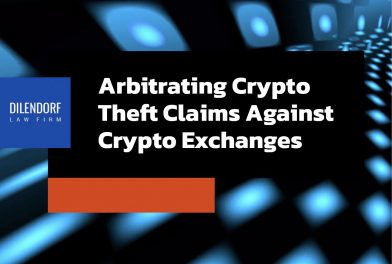Senior Citizens Beware: Crypto “Spoofing” Scams are on the Rise
Financial scams and other types of fraud have been on the rise since the advent of the Internet thirty years ago, but according to the FBI’s economic crimes unit, older adults are losing more money at a faster pace than any other demographic group. The agency saw a 350% increase in cryptocurrency-related scams targeted to older adults in 2022, and it hasn’t leveled off since. Most recently, these crimes have been focused on scams involving people posing as law enforcement officers and agents from U.S. government agencies, asking seniors to transfer money into a fake government-run account which is connected to a cryptocurrency exchange.
At least three recent warnings about a spike in cybercrime aimed at senior citizens have caused senior advocacy groups such as AARP to warn members about a new type of elder fraud. The latest trend, called “spoofing,” has quickly become the most dangerous scam targeting older adults. This type of crime mimics telemarketing and email scams by attempting to gain personal information from targets, but takes it one step further by appearing to call from a law enforcement agency with a warrant for their arrest. Even the most skeptical individuals may have a hard time believing a scam is underway when the Caller ID says it’s the local police department.
Unlike some more recognizable schemes to defraud the elderly, these criminals often come prepared with detailed personal information about their targets, which along with their “spoofed” caller ID, quickly gains trust from even the most cautious older adults.
Categorized as a cybercrime, another differentiator of spoofers is their method of payment, which tends to be made in cryptocurrency, such as Bitcoin. By making transactions through crypto wallets these criminals are much harder to trace and the money they get from victims is quickly moved from one untrackable digital wallet to another.
Alarm bells have been sounded across the country, with some of the most recent scammers detected in Kauai and Honolulu Hawaii. Victims reported similar scripts being used to make victims believe they are under threat of arrest or serious fines if they do not comply by making an immediate payment in the form of cryptocurrency.
According to Kauai’s Assistant Police Chief, Kalani Ke, “It’s crucial to report such incidents to the Kauai Police Department and remember that law enforcement agencies will never call you to demand payment of any kind.” As published in a recent news release, the Kauai Police Department is warning residents about con artists posing as law enforcement officials calling to solicit money.
A separate group of scammers targeting residents of Honolulu Hawaii pretending to be FBI agents. The callers are attempting to collect unpaid fines and telling potential victims they will be arrested unless they comply immediately by making a payment in Bitcoin or other cryptocurrency.
It turns out these are not just isolated incidents on the islands of Hawaii. A few months after these municipalities alerted residents, a warning came from Washington DC on behalf of the Internal Revenue Service (IRS), mentioning a similar scam involving callers pretending to be from the IRS. According to the June 12, 2024 release, “As part of continuing efforts to protect the senior community, the Internal Revenue Service today issued a warning about the rising threat of impersonation scams.”
“Victims are pressured into making immediate payments through unorthodox methods such as gift cards or wire transfers under the pretense of resolving fictitious tax liabilities or securing false refunds,” according to the IRS release.
Once the authorities have been notified about a scam, the fight is not over, according to Max Dilendorf, founding partner of the Dilendorf Law Firm. “Aside from being ultra vigilant and suspicious of any outreach from an individual claiming to be from a local, state or federal agency, seniors and other targeted victims should consider their legal options.”
The Dilendorf Law firm will investigate the nature of the crime, gather evidence, and navigate the federal cyber security and consumer protection laws which were designed to protect individuals from all kinds of cybercrime. Regardless of circumstances, if the theft is from a regulated cryptocurrency exchange the potential to recover lost funds remains legally viable.
“It is possible to use these legal avenues to recover lost funds and hold all types of scammers accountable for their crimes, but it takes an experienced hand who has successfully navigated this territory,” says Dilendorf, “We offer ongoing guidance for individuals who have been victims of elder fraud by exploring every avenue for the recovery of their funds.”
For more information or to schedule a free consultation, please visit Dilendorf Law Firm’s Website or get in touch with us via email at info@dilendorf.com or by phone at 212.457.9797.
Resources:
- FBI 2022 Congressional Report on BEC and Real Estate Wire Fraud
- Wire Transfer Scams
- FinCEN Analysis of Business Email Compromise in the Real Estate Sector Reveals Threat Patterns and Trends
- Wire Transfer Scams Involving Real Estate Transactions Are Increasing
- Beware of Real Estate Wire Transfer Scams
- Division of Real Estate warns email scam stealing loan proceeds in wire fraud
- Real Estate & Rental Scams
- Department Of State And Division Of Consumer Protection Alerts New Yorkers About Real Estate And Rental Scams
- Electronic Fund Transfer Act
- Electronic Fund Transfer Act
- Laws and Regulations EFTA – Electronic Fund Transfer Act
- Electronic Fund Transfers (Regulation E); Amendments
- Electronic Fund Transfers FAQs
- Electronic Fund Transfer Act, Comptroller’s Handbook
- Electronic Fund Transfer Act (Regulation E)
- Electronic Fund Transfer Act (Interagency)
- Direct Deposit (Electronic Funds Transfer) – Fiscal.Treasury.gov
- 15 USC Chapter 41, Subchapter VI
- Compliance Bulletin on the Electronic Fund Transfer Act’s Compulsory Use Prohibition and Government Benefit Accounts
- 12 CFR Part 1005 — Electronic Fund Transfers (Regulation E)
- Subpart 32.11 – Electronic Funds Transfer
- What is Regulation E and the Electronic Funds Transfer Act (EFTA)?
- Electronic Funds Transfer EFT Authorization Agreement
- Direct Deposit (Electronic Funds Transfer) – Vendor Guidance
- Electronic Fund Transfers (Regulation E)
- 2022 Annual Report to CFPB Regarding Enforcement Activities Under TILA, CLA, and EFTA
- Electronic Fund Transfer Act: Supplemental OCC Examination Procedures on Remittance Transfer Amendments; Summary of Amendments; and Rescissions
- Consumer Rights in Electronic Fund Transfers: Legal Guide CR-6
- 209 CMR 31.00: Electronic Fund Transfers and Establishment and Operation of Electronic Branches
- 28:4A–108. Relationship to Electronic Fund Transfers Act







